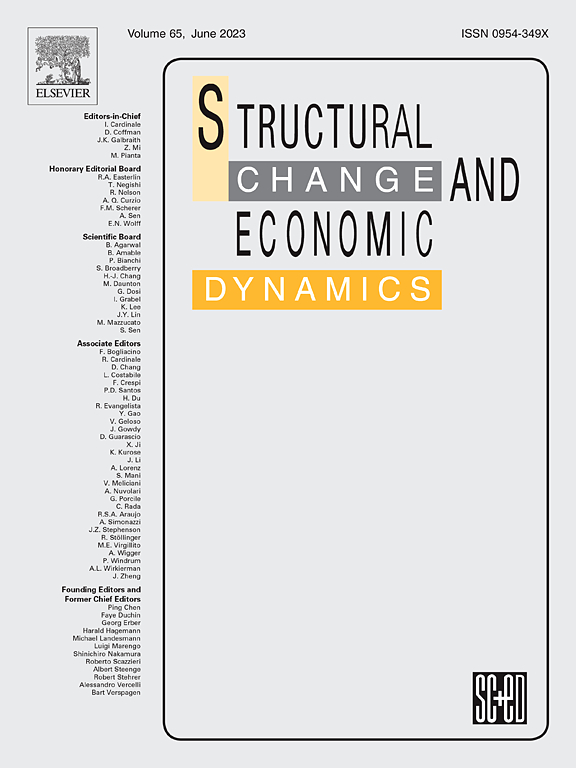制裁一个大经济体的自然实验:谁赢得了比较优势?
IF 5.5
2区 经济学
Q1 ECONOMICS
引用次数: 0
摘要
本文旨在定量评估近期对俄制裁对目标国、制裁国和制裁中立国在世界贸易中的地位的短期影响。我们分析了各国和两位数HS产品组的年度贸易流量数据。应用了统计和计量经济学方法。替代比较优势指标用于衡量三组国家专业化和竞争力的变化。我们得到的经验证据证实,至少在所分析的短期内,冲突双方都受到贸易限制对目标国家的负面影响更大。一些调查结果使我们得出结论,生产和消费的结构性变化是支持制裁下经济的一个重要因素。制裁国家似乎也比同等规模的中立经济体更容易失去出口地位和/或加强对进口的依赖。本文章由计算机程序翻译,如有差异,请以英文原文为准。
The natural experiment of sanctioning a big economy: Who wins comparative advantages?
This paper is aimed at quantitatively assessing the short-run impact of the recent sanctions against Russia on the position of the target, sanctioning and sanctions-neutral states in world trade. We analyze data on yearly trade flows by countries and 2-digit HS product groups. Statistical and econometrics methods are applied. Alternative comparative advantage indicators are used to measure changes in specialization and competitiveness of the three groups of countries. We get empirical evidence that confirms that both sides of the conflict are affected by the trade restrictions with a stronger negative impact on the target country, at least in the analyzed short run period. Some findings let us conclude that structural changes in production and consumption were an important factor that supported the economy under sanctions. Sanctioning states also seem to lose their export positions and/or strengthen their import dependence more than neutral economies of the same size.
求助全文
通过发布文献求助,成功后即可免费获取论文全文。
去求助
来源期刊

Structural Change and Economic Dynamics
ECONOMICS-
CiteScore
9.60
自引率
4.90%
发文量
159
期刊介绍:
Structural Change and Economic Dynamics publishes articles about theoretical, applied and methodological aspects of structural change in economic systems. The journal publishes work analysing dynamics and structural breaks in economic, technological, behavioural and institutional patterns.
 求助内容:
求助内容: 应助结果提醒方式:
应助结果提醒方式:


